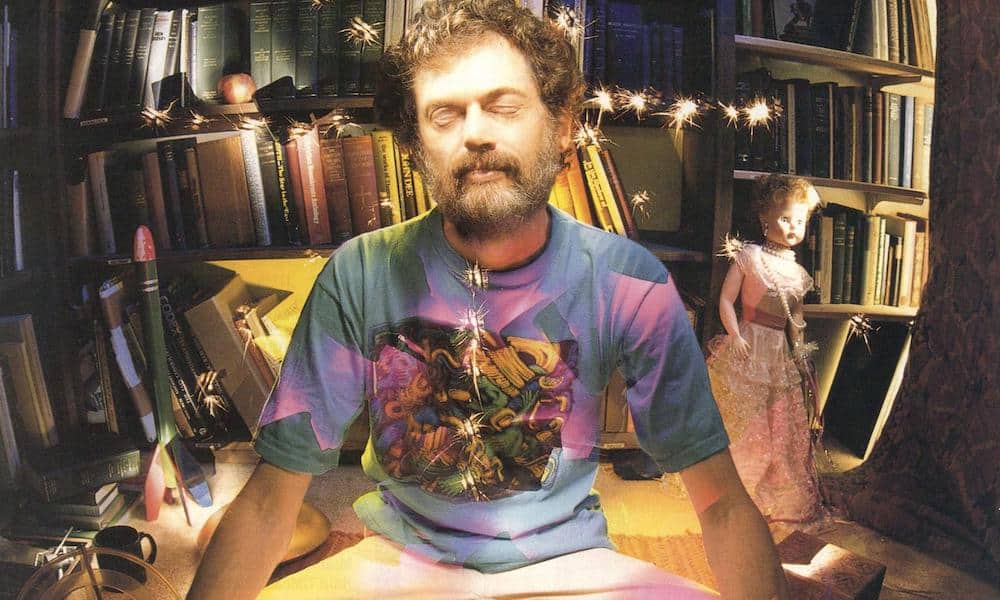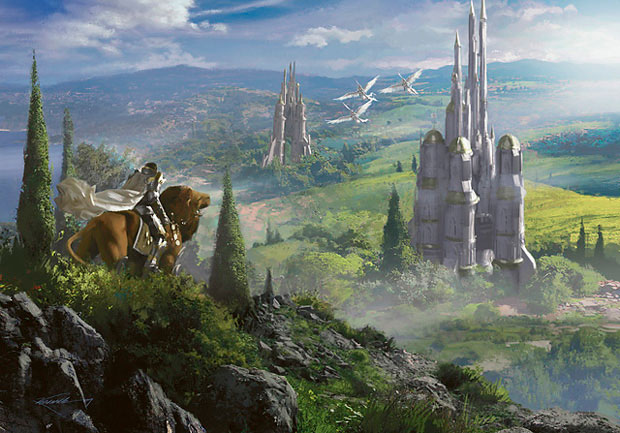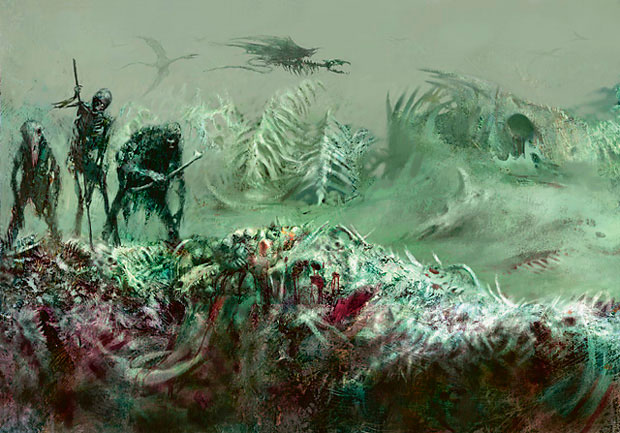Then:
3) In the second video, why does Gandalf say Saruman prioritizes military power over social solidarity?
1) Why do you think that the two Wizards' (Gandalf vs Saruman) approach is so different?
2) Why do you think Gandalf can perceive some foul scheme is in motion yet Saruman or even Galadriel cannot?
Well, I'm not super-fond of Jackson's interpretations of Dol Guldur in general, it ends up being too much of a D&D wizard crapfest. (I am not really fond of how Jackson represents magic; in the books, it springs from essence in general, and at times Jackson exploits this to excess, like when Saruman and Gandalf fight or Galadriel gets all green and glowy. It is better represented in the films when Arwen shows up exposing her pure essence, like when Frodo sees her like a shining goddess. THat is what the highest elves look like when unveiled because they spawned from Valinor or close to it.)
Anyway, both of those film clips are not in the book, they are extrapolations by Jackson, Boyens, and Walsh based on general texts in the books. So I would not hinge much on the DETAILS -- like the morgul blade used to prove Gandalf found something interesting, or the specific language that Saruman uses for Radagast. Yes, gandalf found clues, and yes Saruman disdained Radagast.
However, the generalities are accurate. Gandalf did suspect the shadow was growing in Mirkwood and investigated before anyone else did, he suspected long that the Necromancer might be a guise of Sauron. Galadriel DID want Gandalf to head the White Council, which gnawed at Saruman because he considered himself better than everyone; but Gandalf refused because he did not want to be tied down nor wanted to make any allegiances as de facto leader. Saruman seemed to appreciate hierarchy, Gandalf saw it as a fetter of sorts. (this is right out of the Simlarillion.) Saruman derailed attempts to remove the Necromancer early, not because he did not believe it was Sauron (although he pretended it was not), but because as one of the other videos suggests, I think, that he knew the Ring would seek out his master and wanted time for the Ring to reveal itself so he could find it first.
Saruman overall is fairly conventional. Emotion is not power, POWER is power -- and if you want to be in control, you use your power to do what you want to do. This is why he respects force, it is an overt form of power. But all of Saruman is about power, he develops his skill and craftsmanship (a form of power), he manufactures an army (again, power), he looks for the Ring (the ultimate source of power) and envies those who have other rings of (dare I say it?) "power".
As a side thing, this also means that Saruman does not like situations where he is not in control. He is going to manage risk and not engage if he feels he does not have power over the situation.
Gandalf is different. He sees more value in qualities and essence -- get the motives and the passions and the ideals aligned, and the rest will fall into place. He is Open-oriented, not Closure-oriented -- investigative, exploratory. He wanders everywhere, has made many connections, all as part of his learning. He knows he doesn't know everything and wants to understand more. Because he is more focused on "essence," this also is why he might have more suspicions about the Necromancer -- and instead of deciding what the answer is, what does he do? He investigates... at peril to himself.
So I think this is a big difference between Saruman and Gandalf -- Saruman tries to assert control via the user of power and thinks he already knows everything (to avoid the signs of weakness), whereas Gandalf is as we see him when he was given this mission, he doubts himself, he can experience fear and uncertainty, and so he is able to GROW and investigates things to improve his abilities and knowledge. He also does not seek to dominate, he wants to inspire and encourage, he finds value in others and even the smaller things of the world. he is not convinced (like Saruman is) that POWER is power, he thinks that certain things have qualities that allow them to resist and even overcome power.








